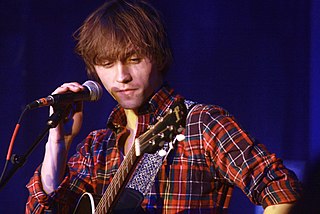A Quote by Joyce Carol Oates
I don't feel I write fast. I write in longhand and do so much revision. On the page, it's so old-fashioned. I could write a whole novel on scrap paper, scribbles and things. I keep looking at it and something develops. For me, using a word processor would mean staring at a screen for too many hours.
Related Quotes
I write fiction longhand. That's not so much about rejecting technology as being unable to write fiction on a computer for some reason. I don't think I would write it on a typewriter either. I write in a very blind gut instinctive way. It just doesn't feel right. There's a physical connection. And then in nonfiction that's not the case at all. I can't even imagine writing nonfiction by hand.
I write in spurts. I write when I have to because the pressure builds up and I feel enough confidence that something has matured in my head and I can write it down. But once something is really under way, I don't want to do anything else. I don't go out, much of the time I forget to eat, I sleep very little. It's a very undisciplined way of working and makes me not very prolific. But I'm too interested in many other things.
I would like to write a novel, or at least try to write one, although my motives are not entirely pure. For one thing, I get asked about writing novels so much that I feel guilty about never having written one. And although I have no strong desire to write a novel, I would hate not to try. That would just be silly. On the other hand, I hate the idea of slogging through something that turns out to be not good.
Perhaps one would be wise when young even to avoid thinking of oneself as a writer - for there's something a little stopped and satisfied, too healthy, in that. Better to think of writing, of what one does as an activity, rather than an identity - to write, I write; we write; to keep the calling a verb rather than a noun; to keep working at the thing, at all hours, in all places, so that your life does not become a pose, a pornography of wishing.






































